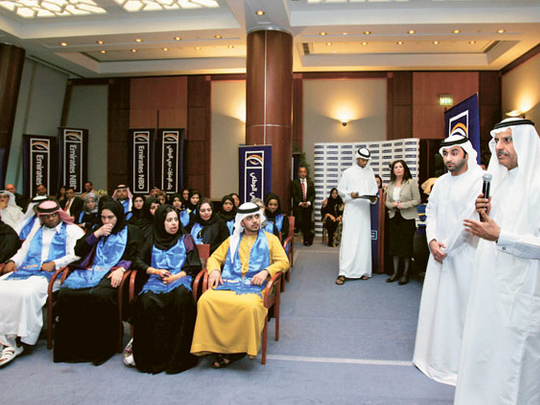
Dubai: Emirates NBD, the UAE's largest bank in terms of assets, will invest Dh50 million in hiring and training UAE nationals in 2011, the bank's chairman announced yesterday to the media after a graduation ceremony of local trainees.
As youth across the Arab world protest against unemployment and lack of economic opportunities, Ahmad Humaid Al Tayer, Chairman of Emirates NBD, said the UAE is working to improve the "very low unemployment rate" among nationals. "We are not worried. This is a different economy and it creates jobs in the public and private sector," he added.
Providing jobs for nationals has political, economic and social returns to the country, Al Tayer noted.
"There are many challenges, nothing is easy," he said of the Emiratisation process. "It's the commitment of the people, their ability to develop their skills, and specialisation requires efforts."
Emirati graduates need skills, training and interaction with others in the workplace and therefore must make use of job opportunities and development programmes available to them, Al Tayer said.
Financing opportunities available to local SMEs, such as the Tumooh programme and the Khalifa Fund, as well as the support of local entrepreneurs should help young nationals, he said. "They have to grab these chances.
"There is a lot of support for entrepreneurship and as long as we are Emiratising, we create talent that can eventually own businesses rather than be employees." Al Tayer added.
The mandatory Emiratisation rate for large corporations is four per cent.
"This is an obligation and any infringement will be monitored," Al Tayer said.
Within the financing sector, banking had the best Emiratisation rate of 35.4 per cent in December 2010 compared to the same period last year, according to a study by the National Human Resources Development and Employment Authority.
Proposals
The first International Human Resources Conference held last month in Dubai proposed that labour departments in the Gulf states should be primarily responsible for managing local workforces and creating opportunities for them.
It also called on GCC governments and the private sector to adopt a strategic approach to the skills gap in the regional job market and make jobs accessible to the local population.












